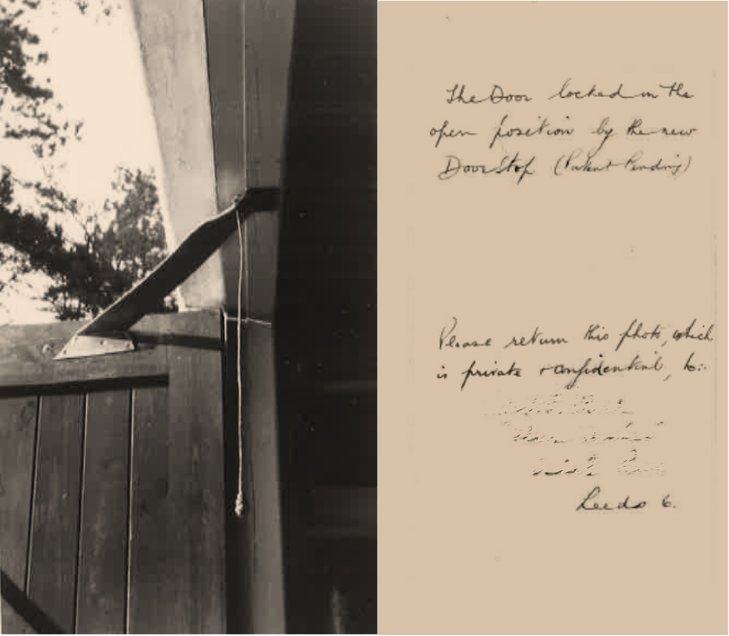31/12/2015
Christmas and New Year is a time well suited for reflection and looking forward. The month of January is said to bear the name of the Roman god Janus, god of beginnings and transitions. With two faces, one looking forward and one looking backward, who else but Janus could have presided over the New Year which brings, by necessity, an opportunity to reflect upon the old and improve for the new? Patents bear more than just a passing resemblance to this process, and I am convinced that if the Romans had invented the patent system, they would surely have named Janus their God of Patents. Keeping one eye on what has gone before, a patent protects a new invention that will be useful now and into the future. But what brave new world will the future be? It is, perhaps, the ultimate billion-dollar question.
The cause of this introspection derives, inevitably, from a family get-together this Christmas when I was given a photograph of an invention my great-grandfather tried to patent. My great-grandfather was highly innovative and sought to find solutions to the problems others would merely tolerate or not even notice. He worked for a boiler company in Leeds and most of his inventions made working with unwieldy pressure vessels safer and easier. The photograph itself shows a twisted piece of metal propping open a door with some string attached, presumably to encourage the mechanism to shut the door.

The door locked in the open position by the new DoorStop (Patent Pending). Please return this photo, which is Private and Confidential…
The exact function of the device is unknown, as I have as yet been unable to track down anything helpful to do with it, however it strongly evokes the DIY attitude of the time. The concept of patents for me is inextricably linked with the tinkerers in garden sheds, who have had many triumphs. Among the more successful are James Dyson and Trevor Baylis, inventor of the wind-up radio. Although their garden shed endeavours are widely celebrated, their stories and success are increasingly rare. The bulk of patents, by their nature, are awarded in progressive technological fields and in a tech-fuelled world these fields are increasingly to be found in high-budget facilities, many leagues away from wooden work benches, chipped flower pots and quietly rusting golf clubs.
The United Kingdom Intellectual Property Office (UK IPO) released a report1 in October 2014 identifying “eight great technologies” to shape future industry – although there are actually ten (there perhaps not being a suitable rhyming superlative for ‘ten’). These technologies include the current research and development big names, such as life sciences, computing and advanced materials, but also include energy and its storage, quantum technologies and the enigmatically named “internet of things.” The next big leap forward, we are assured, will be from this line-up.
So where does this leave the garden shed tinkerer? Quantum computing and pharmaceuticals appear to be hopelessly out of sight from the garden shed’s window; however that does not mean that it is time to lock the door and plant the keys under the roses. After all, Graphene – a “wonder material” of exceptional properties – was invented in Manchester with what amounts to some sticky tape and a pencil. If necessity, as they say, is the mother of invention then it would not be at all surprising if someone in Northern England, thoroughly fed up with flood water overflowing into their wellies, suddenly devised a simple and ingenious method to make life a lot easier. Inventions such as so-called “Thirsty Concrete”2 already show a desire and need for solutions to the consequences of climate change, and these needs are predicted to only get larger. I am secretly hoping that garden shed inventors will sharpen their pencils and produce an idea that is capable of genuinely helping millions of people and saving unfathomable costs. If proved right, I shall be dancing in the street with my wellies on like the rest of them.
This article is for general information only. Its content is not a statement of the law on any subject and does not constitute advice. Please contact Reddie & Grose LLP for advice before taking any action in reliance on it.


